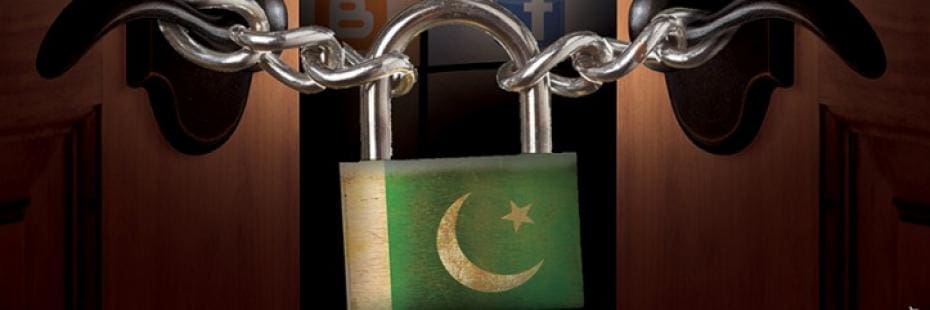As the director of human rights organisation Bytes for All, Shazad Ahmed has brought the banning of YouTube in Pakistan to the world’s attention. He claims he couldn’t have done it without our support: “I would say we owe it all to MLDI.”
The Pakistani government blocked YouTube in September 2012 on the grounds of protecting morality and restricting access to so-called blasphemous content. But research suggests that the block was politically motivated. The government didn’t want anyone to see a video of the military’s involvement in a land grab or a clip of the president telling members of the public to ‘shut up’ in the middle of a public speech.
The impact of the block has been huge. As well as the violation of the human right to seek and receive information, there is the day-to-day impact on people’s development and well-being. The Virtual University, for example, relied on YouTube to provide thousands of free lectures to those who want to educate themselves in their spare time. Since the blocking, all these opportunities have been taken away – ultimately hindering the development of Pakistanis and the country as a whole.
Bytes for All worked with pro-bono lawyer Yasser Latif Hamdani and lodged a challenge against the block in the High Court of Lahore in January 2013. After the case had been stalled on numerous occasions Shahzad approached MLDI; “I knew we didn’t have the capacity to fight the case alone.”
We bolstered the case by bringing our global perspective which complemented the local expertise of their lawyer and helped them form a rational, constitutional argument, moving the focus away from Pakistan’s complex blasphemy laws: “We were able to take stances that we wouldn’t have been confident about if MLDI hadn’t been backing us.”
Together we requested the urgent intervention of the UN Special Rapporteur on Freedom of Expression. The case attracted attention from around the world, including in The New York Times, The Washington Post and The Guardian. “Working with MLDI, we were always more credible, always more authentic.”
After 20 hearings, in May 2014 the High Court of Lahore stated that YouTube should be unblocked. A technicality means that the case needs to go through the Supreme Court before the ban can be lifted.
Shahzad is optimistic that the ban will be lifted within the year. In the meantime, the case has proved a learning curve for the Pakistani courts. “Before this case, lawyers and judges didn’t know about how online censorship worked,” says Shahzad, “So it’s been a very useful process with a community of lawyers and judges having been educated on these issues.”
He also believes the case will help create internet freedom for people not just in Pakistan but throughout the Islamic world. “Pakistan is very influential and we have already devised a strategy for reaching out to other countries like Turkey, Egypt and Bahrain. I think what is happening here will have a very positive impact on internet censorship in the rest of the Islamic world.”
Recent Case Studies
YouTube – an internet freedom case that will impact on people throughout the Islamic world
The precarious state of press freedom in Turkey, entwined with a deteriorating democratic environment, poses significant challenges to journalists. Increasingly they face arbitrary arrests, legal threats, and increasing violence in their pursuit of reporting truth. In response to these threats, the Media and Law Studies Association (MLSA), our partner, actively defends press freedom and human […]
YouTube – an internet freedom case that will impact on people throughout the Islamic world
23 October 2023 marks one year since the killing of prominent Pakistani journalist and news anchor for Pakistani broadcaster, ARY News, Arshad Sharif. Sharif was fatally shot at close range by Kenyan Police at a roadblock near Nairobi. To this day, a transparent, independent and effective investigation into the circumstances of his death has not […]
YouTube – an internet freedom case that will impact on people throughout the Islamic world
November 2nd marks the International Day to End Impunity for Crimes Against Journalists. The threats and dangers that constitute a stark reality for many journalists reinforce the importance of this day. Every year journalists are killed, tortured, and harassed for carrying out their work. Over 1,600 journalists have been killed since 2003 with a sharp […]



